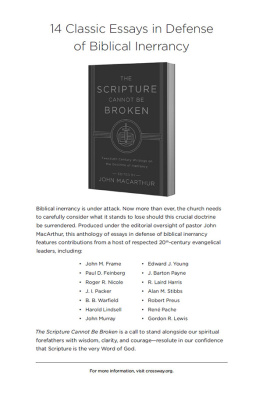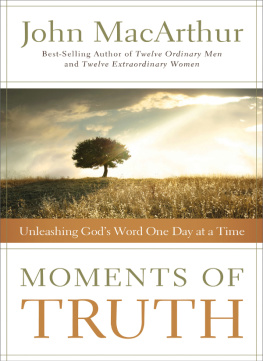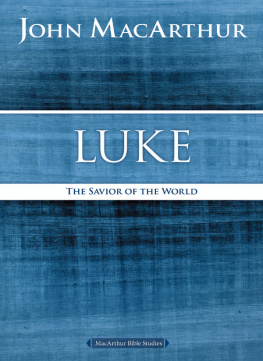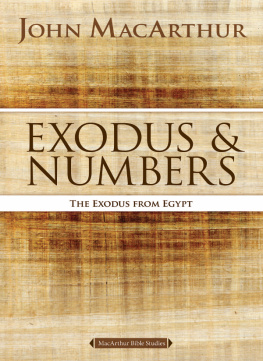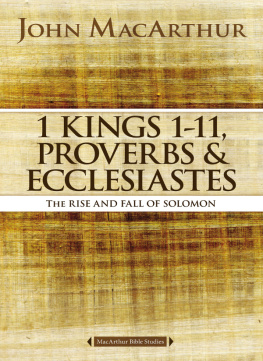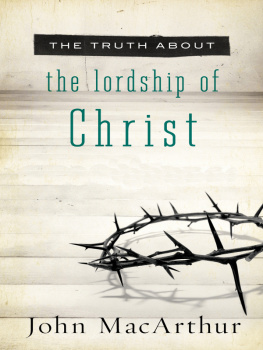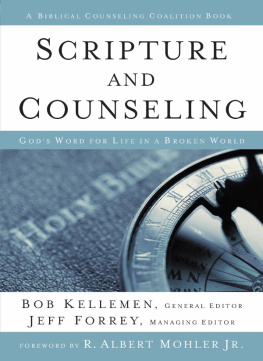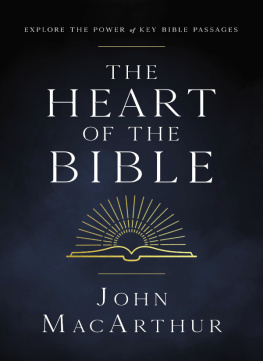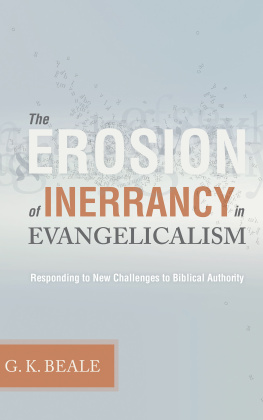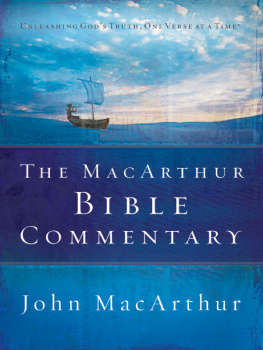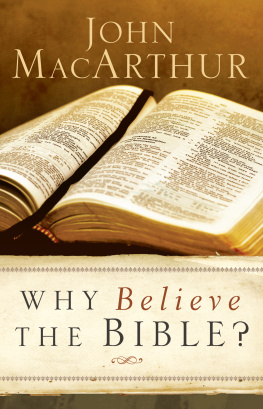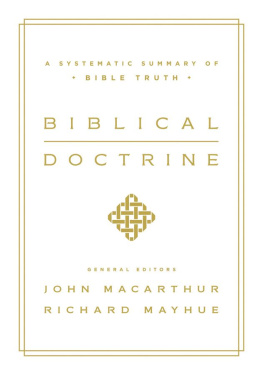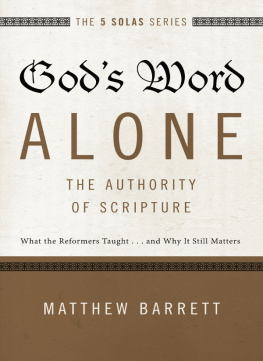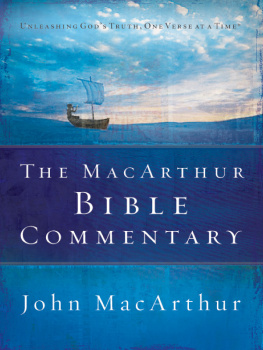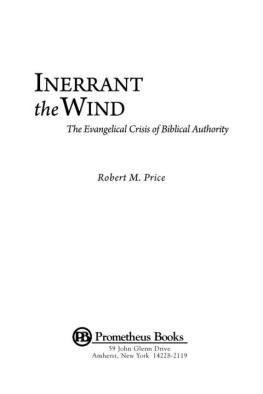
Thank you for downloading this Crossway book.
Sign-up for the Crossway Newsletter for updates on special offers, new resources, and exciting global ministry initiatives:
Crossway Newsletter
Or, if you prefer, we would love to connect with you online:
THE INERRANT
WORD
BIBLICAL, HISTORICAL, THEOLOGICAL, AND PASTORAL PERSPECTIVES
John MacArthur
General Editor
FOREWORD BY R. C. SPROUL

The Inerrant Word: Biblical, Historical, Theological, and Pastoral Perspectives
Copyright 2016 by John MacArthur
Published by Crossway
1300 Crescent Street
Wheaton, Illinois 60187
All rights reserved. No part of this publication may be reproduced, stored in a retrieval system or transmitted in any form by any means, electronic, mechanical, photocopy, recording or otherwise, without the prior permission of the publisher, except as provided for by USA copyright law. Crossway is a registered trademark in the United States of America.
Cover design: Tim Green, Faceout Studio
First printing, 2016
Printed in the United States of America
Chapter 14, The Use of Hosea 11:1 in Matthew 2:15: Inerrancy and Genre by G. K. Beale is reprinted with minor edits from Journal of the Evangelical Theological Society 55/4 (2012), 697715, with permission of the publisher.
The Appendix, The Chicago Statement on Biblical Inerrancy, is reprinted with the permission of the Alliance of Confessing Evangelicals.
Unless otherwise indicated, all Scripture quotations are from the ESV Bible (The Holy Bible, English Standard Version), copyright 2001 by Crossway, a publishing ministry of Good News Publishers. Used by permission. All rights reserved.
Scripture quotations marked KJV are from the King James Version of the Bible.
Scripture quotations marked NASB are from The New American Standard Bible. Copyright The Lockman Foundation 1960, 1962, 1963, 1968, 1971, 1972, 1973, 1975, 1977, 1995. Used by permission.
Scripture quotations marked NIV are taken from The Holy Bible, New International Version, NIV. Copyright 1973, 1978, 1984, 2011 by Biblica, Inc. Used by permission. All rights reserved worldwide.
Scripture quotations marked NKJV are from The New King James Version. Copyright 1982, Thomas Nelson, Inc. Used by permission.
Scripture quotations marked NRSV are from The New Revised Standard Version. Copyright 1989 by the Division of Christian Education of the National Council of the Churches of Christ in the U.S.A. Published by Thomas Nelson, Inc. Used by permission of the National Council of the Churches of Christ in the U.S.A.
Scripture quotations marked PHILLIPS are from The New Testament in Modern English, translated by J. B. Phillips 1972 by J. B. Phillips. Published by Macmillan.
Scripture quotations marked AT are the authors translation.
All emphases in Scripture quotations have been added by the authors.
ISBN: 978-1-4335-4861-1
ePub ISBN: 978-1-4335-4868-0
PDF ISBN: 978-1-4335-4862-8
Mobipocket ISBN: 978-1-4335-4867-3

Library of Congress Cataloging-in-Publication Data
The inerrant word: biblical, historical, theological, and pastoral perspectives / John MacArthur, general editor; foreword by R. C. Sproul.
pages cm
Includes bibliographical references and index.
ISBN 978-1-4335-4861-1 (hc)
1. BibleEvidences, authority, etc. I. MacArthur, John, 1939 editor.
BS480.I427 2016
220.1'32dc23 2015023859

Crossway is a publishing ministry of Good News Publishers.
RRD 24 23 22 21 20 19 18 17 16
15 14 13 12 11 10 9 8 7 6 5 4 3 2 1
Contents
The Bible is the Word of God, which errs. From the advent of neoorthodox theology in the early twentieth century, this assertion has become a mantra among those who want to have a high view of Scripture while avoiding the academic liability of asserting biblical infallibility and inerrancy. But this statement represents the classic case of having ones cake and eating it too. It is the quintessential oxymoron.
Let us look again at this untenable theological formula. If we eliminate the first part, The Bible is, we get The Word of God, which errs. If we parse it further and scratch out the Word of and which, we reach the bottom line:
God errs.
The idea that God errs in any way, in any place, or in any endeavor is repugnant to the mind as well as the soul. Here, biblical criticism reaches the nadir of biblical vandalism.
How could any sentient creature conceive of a formula that speaks of the Word of God as errant? It would seem obvious that if a book is the Word of God, it does not (indeed, cannot) err. If it errs, then it is not (indeed, cannot be) the Word of God.
To attribute to God any errancy or fallibility is dialectical theology with a vengeance.
Perhaps we can resolve the antinomy by saying that the Bible originates with Gods divine revelation, which carries the mark of his infallible truth, but this revelation is mediated through human authors, who, by virtue of their humanity, taint and corrupt that original revelation by their penchant for error. Errare humanum est (To err is human), cried Karl Barth, insisting that by denying error, one is left with a docetic Biblea Bible that merely seems to be human, but is in reality only a product of a phantom humanity.
Who would argue against the human proclivity for error? Indeed, that proclivity is the reason for the biblical concepts of inspiration and divine superintendence of Scripture. Classic orthodox theology has always maintained that the Holy Spirit overcomes human error in producing the biblical text.
Barth said the Bible is the Word (verbum) of God, but not the words (verba) of God. With this act of theological gymnastics, he hoped to solve the unsolvable dilemma of calling the Bible the Word of God, which errs. If the Bible is errant, then it is a book of human reflection on divine revelationjust another human volume of theology. It may have deep theological insight, but it is not the Word of God.
Critics of inerrancy argue that the doctrine is an invention of seventeenth-century Protestant scholasticism, where reason trumped revelationwhich would mean it was not the doctrine of the magisterial Reformers. For example, they note that Martin Luther never used the term inerrancy. Thats correct. What he said was that the Scriptures never err. Neither did John Calvin use the term. He said that the Bible should be received as if we heard its words audibly from the mouth of God. The Reformers, though not using the term
Next page
